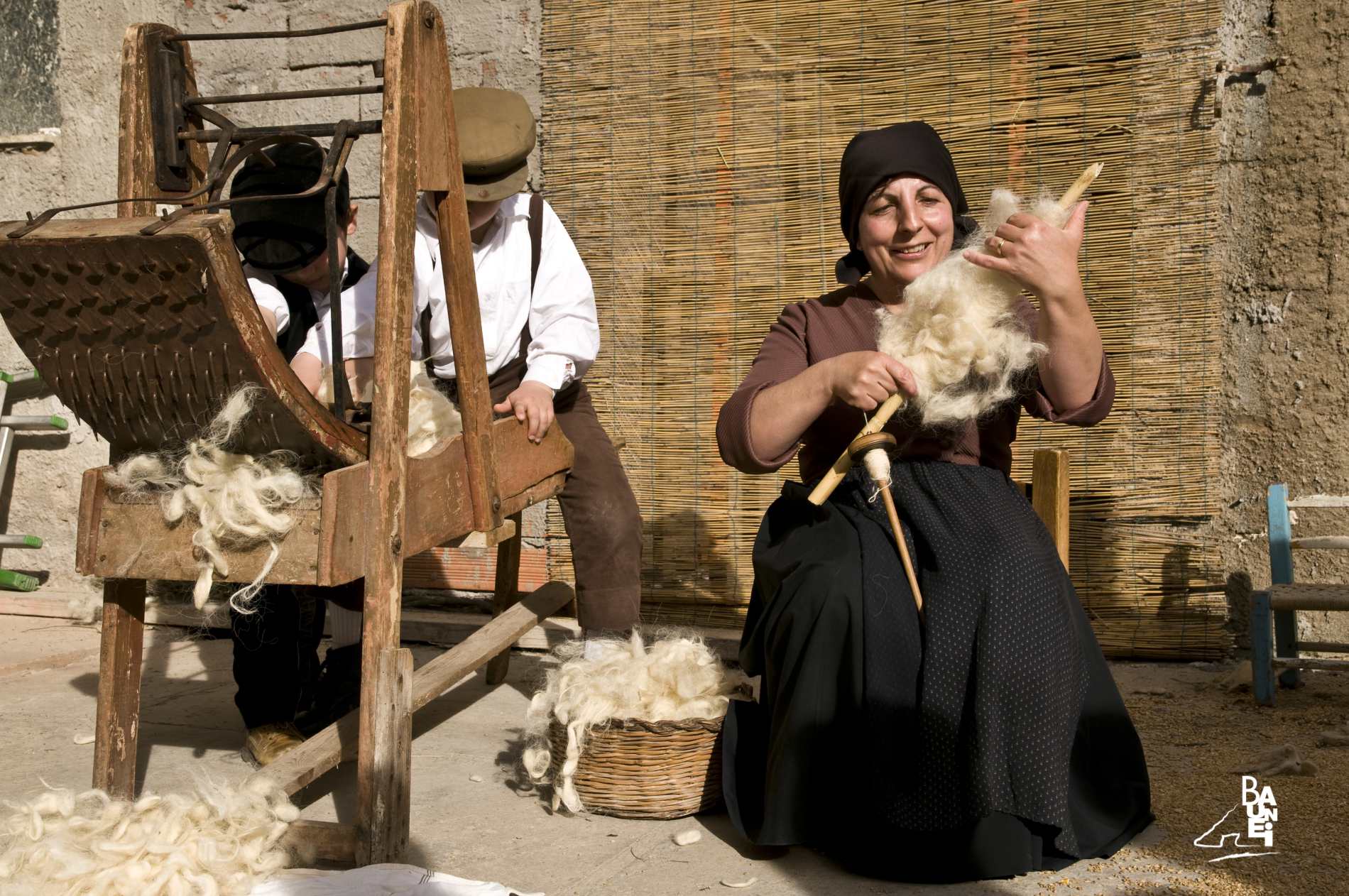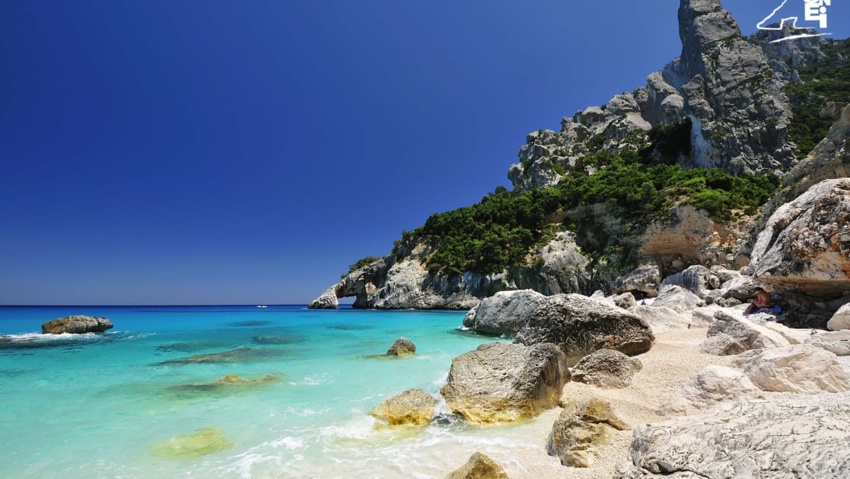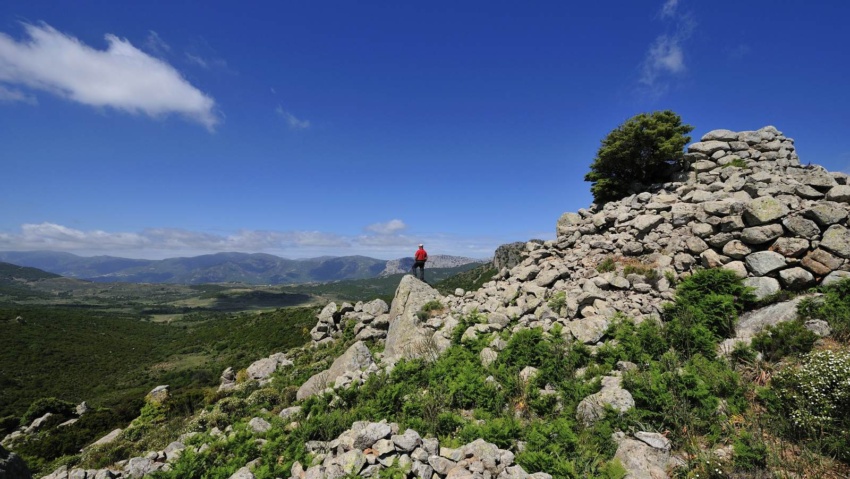Sa Dommu Eccia” Ethnographic Museum”
“Sa Dommu Eccia” (“The Old House”, in Sardinian) Ethnographic Museum is located on Independence Square, in a nineteenth century building that up until the sixties also housed the village kindergarten. Designed, set up and managed by the “Associazione Santa Rita da Cascia”, since the late nineties the Ethnographic Museum of Baunei offers visitors a faithful insight into the daily life of the village before the advent of modernity.
The display of various tools, furnishings and clothing is laid out on two floors. On the ground floor, the public has access to three rooms: the kitchen with its old fireplace, the weaving room and the charming inner courtyard, home to an old ox cart still in excellent condition and many other work tools. The numerous period photographs on display in the kitchen – dining room are also interesting and worthy of note. The first floor has two furnished rooms: the bedroom and the “sala degli strumenti”, where everyday objects typical of an agro-pastoral community such as the one in Baunei are on display. Here you can take a closer look at the tools used by farmers in the countryside and those used by herdsmen in the folds.
The ethnographic museum is open every day from May to October and visitors are guided around the various rooms by members of the Associazione Santa Rita, who in addition to managing the museum on Independence Square, also organise the festival in honour of the Saint of Cascia in the second half of May every year. The respect for ancient traditions of the women from “Santa Rita” is also evident in the organisation of festivals dedicated to local gastronomy, usually coinciding with etnogastronomic events such as “Artes e tastus de una ie” (“trades and flavours of yesteryear”), which in the last few years has been held between late May and early June.
Every year, the festivals dedicated to “culurgiones” (ravioli with cheese and potatoes) and “su cunfettu”, a typical sweet of Baunesis marriages, made with honey, almonds and orange peel, have registered considerable success. The offer of “su cunfettu” to wedding guests is one of the most significant moments of “su cùmbidu” (“the invitation”) that precedes the wedding feast and is held upon returning from the religious ceremony. Tradition has it that the women of the two families involved in the marriage must meet on the Wednesday before the ceremony specifically to prepare the “su cunfettu”.
.
CONTATTI
Via San Nicolò, 2 – 08040 BAUNEI (Sardinia, Italy)
infopoint@turismobaunei.eu
+39 349 5462583





